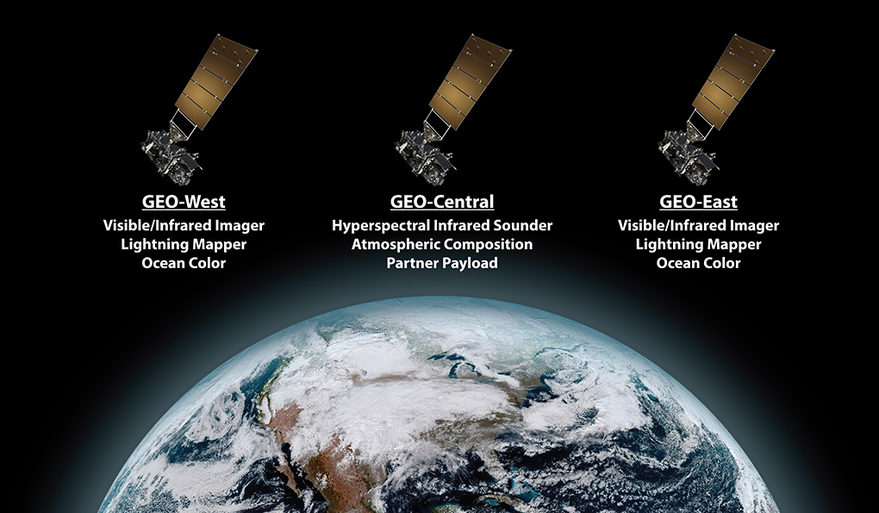WASHINGTON — The Government Accountability Office has rejected a protest filed by L3Harris over NASA’s award of a contract to Ball Aerospace for a next-generation weather satellite instrument.
NASA announced Sept. 11 that it awarded a $486.9 million contract to Ball Aerospace to develop an instrument for the Geostationary Extended Observations, or GeoXO, weather satellite program for the National Oceanic and Atmospheric Administration. The instrument, called the GeoXO Sounder or GXS, is a hyperspectral infrared instrument.
L3Harris filed a protest with the GAO arguing that NASA’s evaluation of the technical and cost proposals from the two companies, the only bidders on GXS, was “unreasonable, irrational, and inadequately documented.” A key issue for L3Harris was that it had a higher score in its technical approach but NASA picked Ball because of a lower price.
L3Harris’s proposal received a technical approach score of 600 points out of 750, while Ball’s proposal received 563 points. The two companies received similar scores on two other aspects, management approach and small business utilization. Ball submitted a bid of $486.9 million while L3Harris bid $764.9 million.
The GAO, in its evaluation of the protest publicly released Dec. 28, concluded that NASA made clear in the request for proposals that technical approach is only one of several factors it incorporated into its evaluation. NASA also made “cost realism” adjustments to Ball’s bid to address weaknesses, such as “a schedule with non-credible aspects” that would likely result in delays.
Those adjustments led NASA to estimate a probable cost of Ball’s bid of $553.9 million, still significantly less than L3Harris’s proposal. NASA concluded the “very significant cost advantage” of Ball’s proposal outweighed the “slight” technical advantage of L3Harris’s proposal.
L3Harris argued that NASA should have made an even larger adjustment because…
Read the full article here

